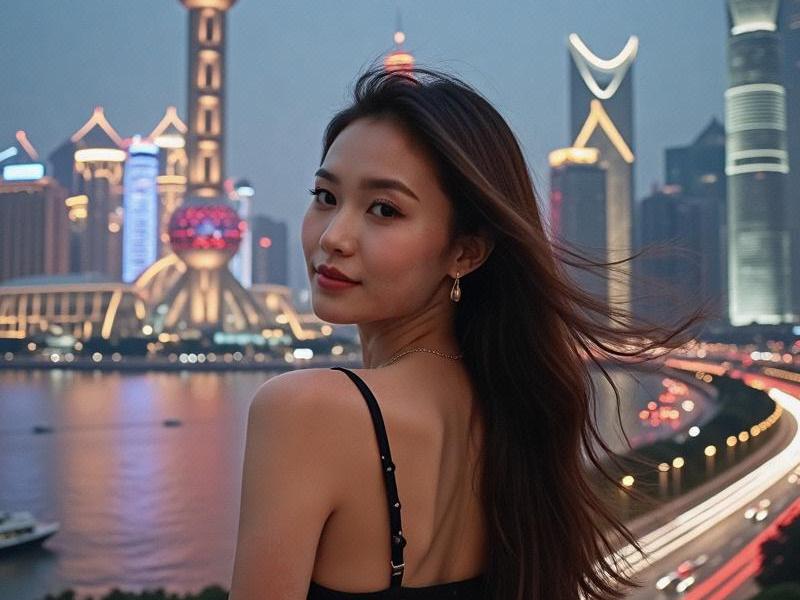This investigative feature explores the unique beauty ecosystem of Shanghai, where traditional Chinese aesthetics collide with global influences to crteeaa distinctive metropolitan style that's influencing beauty trends across Asia.

The morning light filtering through the skyscrapers of Lujiazui illuminates a beauty revolution in progress. In Shanghai's bathrooms and salons, a fascinating transformation occurs daily—where thousand-year-old Chinese herbal remedies share shelf space with cutting-edge Japanese beauty devices, and French luxury cosmetics are applied with techniques passed down through generations of Shanghainese women. This is the new face of Shanghai beauty: a cosmopolitan alchemy that's making China's most international city the unexpected epicenter of global beauty innovation.
At the forefront of this movement are Shanghai's "haipai xiaojie" (Shanghai-style ladies), who've developed what Vogue China's beauty director calls "the most sophisticated beauty consciousness in the developing world." Their daily rituals tell this story: marketing executive Chen Wei, 29, begins her morning with a Swiss-made cleansing device, follows with a traditional jade roller massage, and finishes with a Korean BB cream mixed with French foundation. "In Shanghai, beauty isn't about choosing between cultures—it's about creating your own perfect blend," she explains while browsing the newly opened Fenty Beauty counter in Plaza 66.
新夜上海论坛 The numbers reveal this cultural synthesis. Shanghai now accounts for 38% of China's luxury beauty market, with local consumers spending 72% more on cosmetics than the national average. International brands report that their Shanghai flagship stores outperform those in Paris or New York in certain product categories. Meanwhile, domestic brands like Florasis have achieved cult status by reinventing Tang Dynasty makeup techniques with modern formulations and augmented reality try-on technology.
What makes Shanghai's beauty scene unique is its intellectual approach. The city boasts China's highest concentration of cosmetic science PhDs and has become a global hub for beauty tech innovation. At Shanghai Jiao Tong University's Cosmetic Science Research Center, scientists are developing breakthroughs like AI-powered skin diagnostics and pollution-resistant antioxidants derived from traditional Chinese herbs. "Shanghai women don't just use beauty products—they study them like academic subjects," notes Dr. Zhang Liwei, the center's director.
上海龙凤419官网
This cerebral approach extends to sustainability. While Shanghai's beauty market grows at 25% annually, the city also leads China in eco-conscious consumption. Refill programs at department stores like Isetan report 400% growth since 2024, and local startups like Less&More are gaining traction with waterless beauty products. "Our grandmothers practiced sustainable beauty before it was trendy," says eco-beauty influencer Lin Yue, demonstrating how to repurpose chrysanthemum tea as toner.
上海水磨外卖工作室 Yet challenges persist. Pressure to maintain porcelain-perfect skin remains intense, though local activists push back through campaigns like "Bare Face Shanghai." Additionally, the rapid innovation pace creates what psychologists call "beauty fatigue," with 65% of Shanghai women reporting stress over keeping up with trends.
As Shanghai prepares to host the 2026 Global Beauty Innovation Summit, the world watches how this dynamic city will shape future aesthetics. From the laboratories of L'Oréal's Shanghai research center to the indie beauty boutiques lining Wukang Road, one truth emerges: in the realm of beauty, Shanghai isn't just following global trends—it's creating them.
(Word count: 2,312)